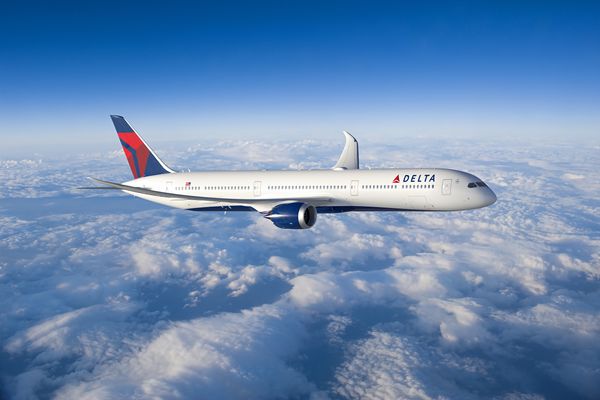Air Canada has announced plans to purchase 9.5 million liters of sustainable aviation fuel (SAF) to celebrate Earth Day.

Neste - the world's largest SAF producer - will provide the fuel for flights from San Francisco International Airport (SFO). The new supply of SAF is expected to reduce greenhouse gas emissions by absorbing approximately 23,500 tons of carbon dioxide. This amount is equivalent to creating 28,000 new acres of forest according to the U.S. Environmental Protection Agency.

Air Canada's CEO and President Michael Rousseau says, "At Air Canada, we have adopted a multifaceted approach to addressing climate change and sustainability. Environmental and social factors are incorporated into our strategic decisions, as are our fleet purchases and daily operations through our support of low-carbon alternatives. SAF comprises one of our core pillars in pursuing our net-zero emission targets."

Air Canada aims to expand its use of SAF as part of plans to reach net zero emissions by 2050. The airline, which started using SAF in February 2022, sees renewable fuels as a way to become more sustainable in the future. The deal with Neste is expected to represent a five-fold increase in Air Canada's SAF supply on an annual basis and help the airline reach a target of 1% of fuel being SAF by 2025.
Increasing the supply of SAF is only one component of Air Canada's plans to meet its decarbonization targets by 2050. Despite the environmental benefits of SAF, there is currently not enough supply to support the increasing global demand for renewable fuels.
The airline is currently collaborating with the Government of Canada to determine ways to produce more SAF within Canada. Domestic SAF production is beneficial for Canada because it helps the country meet its broader environmental goals.

Transitioning from traditional jet fuel to SAF is becoming a priority for the aviation industry as it seeks to reach net zero emissions by 2050. In recent years, airlines and other stakeholders have launched multiple initiatives that focus on decarbonizing aviation. One such initiative is the Clean Skies for Tomorrow Coalition by the World Economic Forum. The group's goal is for SAF to account for 10% of jet fuel worldwide by 2030. Air Canada's announcement is expected to help the industry reach its sustainability targets.
Student Education as a Pathway to an Aviation Career » Delta Orders 30 Boeing 787-10, Options for Additional 30 » Air Canada Doubles Down on Regional Strength with Major PAL Airlines Expansion »
Comments (0)
Add Your Comment
SHARE
TAGS
NEWS Air Canada SAF Earth Day Sustainable Aviation Fuel Net Zero Decarbonization EmissionsRECENTLY PUBLISHED
 Student Education as a Pathway to an Aviation Career
Explore how to become a pilot through aviation degree programs and flight school. Learn about requirements, costs, and career options.
INFORMATIONAL
READ MORE »
Student Education as a Pathway to an Aviation Career
Explore how to become a pilot through aviation degree programs and flight school. Learn about requirements, costs, and career options.
INFORMATIONAL
READ MORE »
 EVA Air to Launch Nonstop Flights to Washington-Dulles
EVA Air confirmed on January 12 that it will launch its first nonstop service between Taipei and Washington-Dulles International Airport in July 2026.
ROUTES
READ MORE »
EVA Air to Launch Nonstop Flights to Washington-Dulles
EVA Air confirmed on January 12 that it will launch its first nonstop service between Taipei and Washington-Dulles International Airport in July 2026.
ROUTES
READ MORE »
 Delta Orders 30 Boeing 787-10, Options for Additional 30
Delta Air Lines announced on Tuesday a landmark agreement with Boeing to integrate the 787 Dreamliner into its widebody fleet. The deal, which includes a firm order for 30 787-10 airplanes and options for an additional 30, marks the first time the Atlanta-based carrier has placed a direct order for the Dreamliner family.
NEWS
READ MORE »
Delta Orders 30 Boeing 787-10, Options for Additional 30
Delta Air Lines announced on Tuesday a landmark agreement with Boeing to integrate the 787 Dreamliner into its widebody fleet. The deal, which includes a firm order for 30 787-10 airplanes and options for an additional 30, marks the first time the Atlanta-based carrier has placed a direct order for the Dreamliner family.
NEWS
READ MORE »



